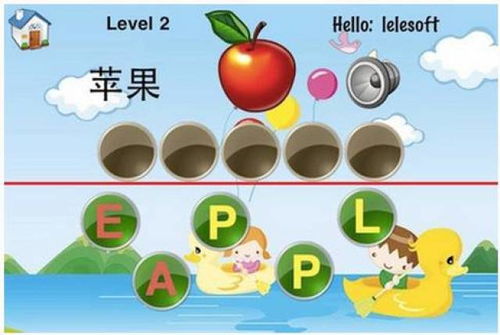
As the gaming industry continues to grow at an exponential rate, the demand for game-related English skills has become increasingly significant. Whether you are a gamer, a game developer, or a content creator, understanding and using game industry English can enhance your experience and open up new opportunities. In this article, we will explore the essential terms, phrases, and concepts that are commonly used in the gaming world.

One of the first things you'll encounter in the gaming industry is the use of tags and categories. These are used to organize games and content for easy navigation. Here are some common tags and categories:
Tags: Action, Adventure, RPG, FPS, Strategy, Casual, Simulation, etc.
Categories: PC, Console, Mobile, VR, AR, etc.

Understanding the language used in game development is crucial for anyone involved in the industry. Here are some key terms:
Game Engine: The software framework used to develop video games.
Scripting: The process of writing code to control the behavior of characters, objects, and other elements in a game.
Level Design: The creation of game environments and the layout of obstacles and challenges.
Game Mechanics: The rules and systems that govern how a game is played.

Before a game is released to the public, it must undergo rigorous testing to ensure it is free of bugs and provides a smooth experience. Here are some terms related to game testing:
Beta Testing: The process of testing a game with a limited audience before its official release.
Alpha Testing: The initial phase of testing, where the game is tested by developers to identify major issues.
QA (Quality Assurance): The process of ensuring that a game meets the required standards of quality.
Bug Reporting: The act of identifying and documenting issues found during testing.

Marketing and promotion are essential for the success of any game. Here are some key terms and phrases:
Press Kit: A collection of materials provided to media outlets to promote a game.
Trailer: A promotional video showcasing the game's features and gameplay.
Community Management: The process of engaging with and supporting a game's community of players.
Key Art: The main visual image used to represent a game, often featuring the game's logo and title.

The gaming industry has its own set of jargon that can be confusing for newcomers. Here are some examples:
Pixel Art: Hand-drawn 2D graphics made up of pixels.
Pixel Shader: A shader used to create realistic lighting effects on pixel art.
Frame Rate: The number of frames per second a game can display, affecting smoothness and performance.
Modding: The process of modifying a game to add new features or change existing ones.

Game industry English is a valuable skill for anyone looking to succeed in the gaming world. By familiarizing yourself with the terms and phrases discussed in this article, you'll be better equipped to communicate effectively with others in the industry, whether you're a gamer, developer, or content creator. Keep exploring and expanding your knowledge to stay ahead in this dynamic and ever-evolving field.

Game Industry English, Game Development, Game Testing, Game Marketing, Game Jargon